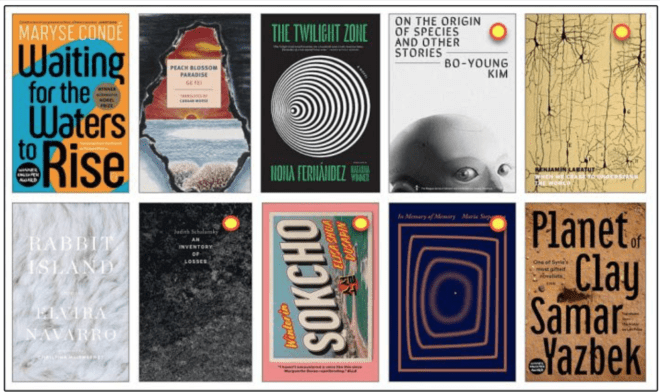Dystopian thriller set in a post pandemic, post climate change world
Free auto-translation service for books and manuscripts? No, thank you
25th October 2021
Springer Nature introduces free auto-translation service for books and manuscripts.
(The Bookseller 18 October 2021) No, thank you and here’s why:

The publisher Springer Nature is choosing to introduce an auto-translation facility with the aim of ‘reducing language barriers’. Touted as a cheap and simple alternative to proper translation, it would seem.
This comes at a time when acknowledging the work of translators has been a rocky road to date and there is a building consensus that their value and input need to be recognised, at the very least their names should appear on the covers of books. There is a considerable movement across Social Media to #namethetranslator on book covers – without them, the book is nothing to a foreign audience. Therefore the Springer Nature initiative feels rather counter productive and a dumbing down of a very specialised and particular skill.
Translation is not simply finding equivalent words in another language but it is about conveying subtle nuance and authenticity, a skill set that is built over time. As Jenny Croft says in her article in The Guardian, 10 September 2021, “..words are human, which means that they’re unique and have no direct equivalents.” Word for word exchange, from one language to another, simply will not do. There would after all be no good translated literature without translators. They find ways to express the words and story of an author and enable it to be read by a whole new audience in a manner that feels familiar and smooth to the reader. For this they deserve due credit, and it is slowly coming.
I myself have worked as a translator and interpreter in industry and I know just how hard it is to convert the sense and the feel of words, sentences and paragraphs – in all their combinations – from one language into another. If you can hear and feel the translator tapping along in the background, then the job isn’t up to scratch. Balancing meaning against original text, understanding the meta-messages and choosing which original words to leave in the translated text is a consummate skill (and we wrote about the optimum level of including original words/phrases in this blogpost – When Does the use of foreign language in a novel feel like a turn off). A translator needs flair, talent, experience and creativity among many other competencies.
Translation is about “Sprachgefühl” which doesn’t really zippily translate so well into English – literally the feel of language. And that is what a computer generated translation will struggle to consistently and evenly convey. Can a computer program ever achieve this? I very much doubt it.
The Society of Authors mounted a campaign to credit authors on book covers and many authors signed up to an open letter:
For too long, we’ve taken translators for granted. It is thanks to translators that we have access to world literatures past and present. It is thanks to translators that we are not merely isolated islands of readers and writers talking amongst ourselves, hearing only ourselves.
Translators are the life-blood of both the literary world and the book trade which sustains it. They should be properly recognised, celebrated and rewarded for this. The first step towards doing this seems an obvious one.
From now on we will be asking, in our contracts and communications, that our publishers ensure, whenever our work is translated, that the name of the translator appears on the front cover.
Following on from that letter, Pan Macmillan in fact announced that they would commit to crediting translators on the covers fo their books.
As an aside, just consider, for example, the10 covers of the titles longlisted for the 2021 US National Book Awards in Translated Literature. Publishers of five of the 10 don’t credit their translators on the covers (Publishing Perspectives, 30th September 2021)

I have read many books in translation, many of which have been terrific. But of course there have also been some bloomers along the way, where translation and idiom have ruined the reading experience and owed much inspiration to Google translate (which is not a good thing when it comes to lengthy narratives). A free auto-translation is really not the way to go and undermines the determined efforts of all those who aim to get the incredible work of the author in front of new audiences, and give appropriate credit to the translator. And what’s next? A computer generated novel written to a formula – oh, that’s already happening….
It’s ok, though, as the article says. “A human check is carried out for accuracy of the translated content” (then why not use a translator who has the skill and judgement to go the extra mile and capture nuance and meaning?).
Tina for the TripFiction Team
Join team TripFiction on Social Media:
Twitter (@TripFiction), Facebook (@TripFiction.Literarywanderlust), YouTube (TripFiction #Literarywanderlust), Instagram (@TripFiction) and Pinterest (@TripFiction)

 Please wait...
Please wait...
